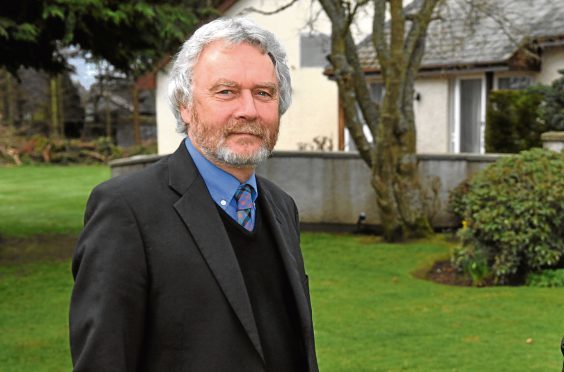Babies will be at greater risk of illness and death in the Highlands and islands as a result of a controversial shake-up of GP services, it was claimed last night,
Michael Foxley, a retired doctor and serving NHS Highland board member, warned of the dire consequences of an “inevitable” drop in the number of rural children being immunised.
He raised concerns that the changes would mean many people in remote communities will no longer go to their local GP surgery for vaccinations but instead be asked to travel to “centres” such as Inverness, Fort William and Thurso.
The move is part of measures designed to free up GPs but Dr Foxley said it would result in some families opting not to travel for immunisations such as the measles, mumps and rubella (MMR) jab.
The former Highland Council leader branded the potential impact of the changes an “unmitigated disaster”.
He added: “I think the consequences, particularly for immunising babies – the immunisation rate will drop as a result, it’s inevitable.
“It means that babies will be at risk, some will get ill and some will die.
“The GP’s job is to advise mothers of the potential benefits of immunisation.
“If you’re in Mallaig or Ullapool you’ll have to travel and I’m quite sure the middle classes will do it but what will happen is the immunisation rate will drop.”
Dr Foxley has raised his fears with the NHS Highland board. Last night, the Scottish Government said any new system would be operated “safely and sustainably”.
Dr Foxley’s warning came after the Rural GP Association of Scotland claimed last week that the financial impact of the new contract could trigger the “extinction” of many surgeries in the north, with 90% facing a funding cut.
The British Medical Association (BMA) said this was “misinformation”.
But yesterday the concerns were echoed by Dr Iain Kennedy, secretary of the Highland Local Medical Committee (LMC) and north of Scotland representative on the BMA’s Scottish Council.
He said: “The BMA GP members, which Highland LMC has a mandate to represent, are overwhelmingly angry and fearful.”
Dr Kennedy said the vast majority of local members intended to vote against the new Scottish GP contracts in an upcoming poll, which must back the new arrangements before they are implemented in April.
Dr Alan McDevitt, chairman of BMA Scotland’s GP committee, said some rural GPs could retain responsibility for vaccinations under the new contract.
“If implemented, the proposed GP contract would see health boards put in place dedicated vaccination teams that are designed to ensure that the vaccination needs of every community are met, while freeing up substantial amounts of GP practice time to better meet the needs of their patients,” he said.
“This already happens successfully in other parts of Scotland. In some smaller remote and rural communities, the health board may decide that the most appropriate option will be to contract with individual GP practices so they continue to deliver vaccinations.
“GPs will continue to recruit and employ their practice managers, receptionists, nurses and health care assistants but will receive support from other staff, normally working in the same GP practices, without the business risks of holding their employment contracts.”
A Scottish Government spokesman said: “Our work to transform vaccination will rely on local areas designing their own delivery models including the involvement of GPs.
“One of the requirements of the programme is that there is no adverse impact on vaccination uptake rates. Transition to the new model will be planned to ensure that it can operate safely and sustainably. We recently committed to increasing the number of GPs in Scotland by at least 800 over the next decade. The health secretary also announced £7.5million in 2018-19 to recruit and retain GPs, particularly in rural areas.
“This investment is delivered as part of our commitment to increase funding in direct support of general practice by £250million by the end of this parliament.”
An NHS Highland spokesman said last night: “We welcome the presentation of a new contract for GMS GPs. If the profession vote to implement the new contract we will work carefully to support our colleagues through the changes proposed.”
“The contract allows for flexible implementation so it is likely that immunisations in rural areas will continue unchanged in the medium term.”
